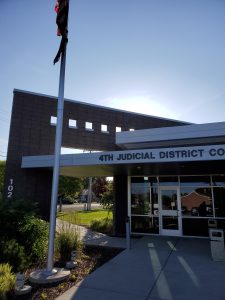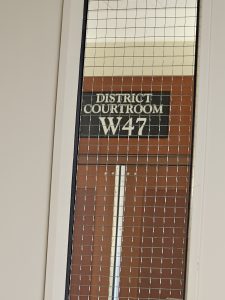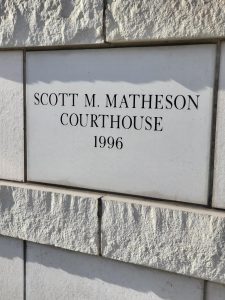



Domestic Violence Expungements in Utah—The Details. 
Any time you have a victim crime there is a much greater likelihood that the expungement will become contested. Contested expungements don’t happen that much, but are way more common with domestic violence crimes.
Like all expungements, the prosecuting attorney must put the victim on notice of the expungement petition. See Utah Code 77-40a-305(6). The victim may file a recommendation or objection to the proposed expungement within 60 days.
If the victim timely objects to your expungement petition within 60 days the court shall set a hearing on the matter. Without an objection, the court may grant the expungement without a hearing.
The prosecution and Adult Probation and Parole may also file objections to your Utah expungement. Any response by the AP&P shall include the reasons probation was terminated and certify that you completed all sentencing, and parole requirements.
As the petitioner you have a right to file written responses to the filed objections, a very good idea.
If your Utah expungement petition becomes contested, a hearing will be held.
Proof Standard. “Clear and convincing evidence,” good cause and; the interests of the public would not be harmed. 77-40a-306(1).
Uncontested Hearings are decided by the court upon clear and convincing evidence that all statutory requirements are met. 77-40a-306(1).
Contested Hearings are decided by the court upon clear and convincing evidence that: 
(1). all statutory requirements are met, and
(2). there is good cause for the court to grant the expungement; and
(3). the interests of the public would not be harmed by granting the expungement
No Evidence Rules. The Utah Rules of Evidence do not apply at contested evidentiary hearings and the judge will decide all evidence issues. The petitioner, the prosecuting attorney, the victim, and any other person who has relevant information about your expungement may testify at the hearing. See 77-40a-10(c).
Burden of Proof. Although the Utah Expungement Act doesn’t directly address who has the burden of proof, you as the proponent of the expungement should be prepared to carry the burden to a touchdown.
You should be prepared with positive declarations and live witnesses if possible for the expungement hearing. Pay stubs, community involvement proofs, religious letters and letters of recommendation are common advocacy materials at expungement hearings. Merit awards, job performance evaluations and civic involvement are other types of advocacy materials you can use at contested expungement hearings.
Hiring an Professional Advocate Matters. There is a huge difference between an attorney who drafts wills or does contracts and a professional advocate trial lawyer. Just having another person by your side at the contested hearings helps. Further most people are not comfortable or able to advocate for themselves in a formal courtroom setting. Having a professional advocate to help you can make the difference. 